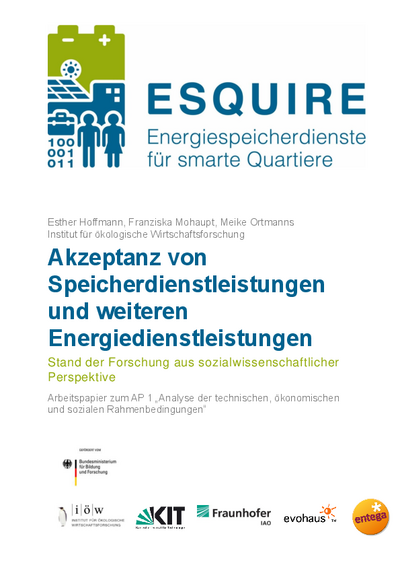Acceptance of Energy Storage Services and Comparable Energy Services State of Research from a Social Science Perspective
This literature study examines the acceptance of energy storage and other energy services. It builds on studies on technology acceptance in general and on the acceptance of individual services in the energy sector. We first introduce a two-part concept of acceptance that distinguishes between attitudinal acceptance and active acceptance. It points to factors that influence users’ decisions to purchase or use a technology or service. Behavioral models show that not only specific characteristics of the technology play a role for its acceptance. In addition, factors such as social and personal norms, trust and behavioral constraints also influence acceptance.
In the core part of the literature study, we discuss research results that address the user attitudes towards battery storage. Both financial and normative drivers, such as independence and climate protection, are identified as motives for storage use. A comparison of individual and shared storage use shows that users see the advantage of a higher level of control in an individual storage system, whereas they assume lower behavioral and financial costs in a shared storage system. Since only a few studies focusing on attitude towards storage are available to date, we analyse additional studies on other energy services (smart meters, smart home, variable tariffs, demand-side management).
An analysis of two different neighborhood structures reveals that these have an influence on the inhabitants’ attitude towards community storage. Not only the technical or organizational implementation of the service itself, but also the setting, in which it is embedded, is relevant for acceptance. Based on the literature analysis we derive hypotheses as a starting point for empirical surveys in two neighborhoods in the ESQUIRE project.



